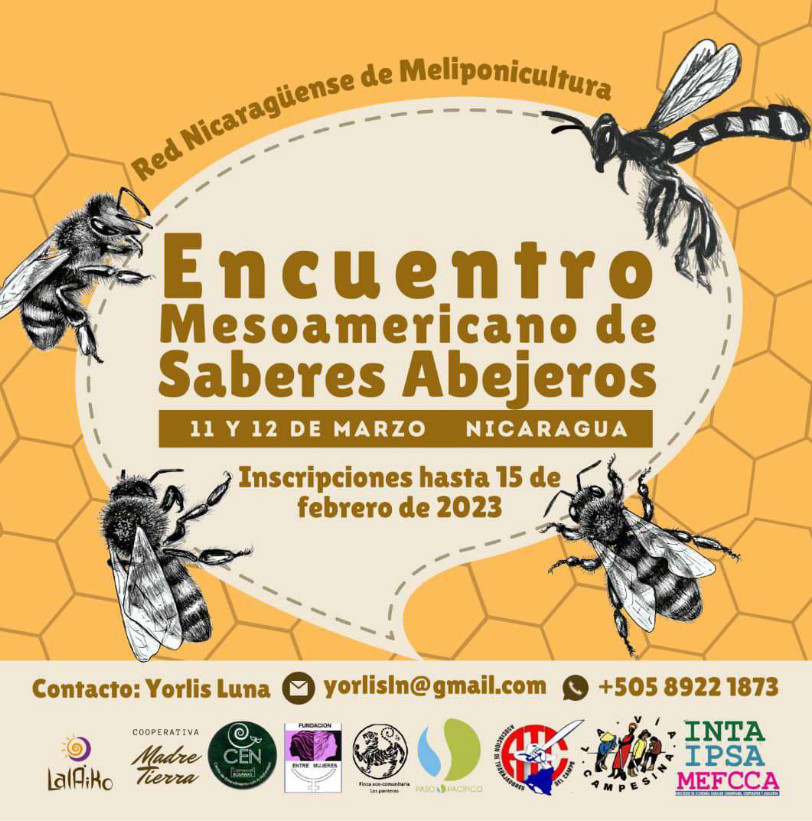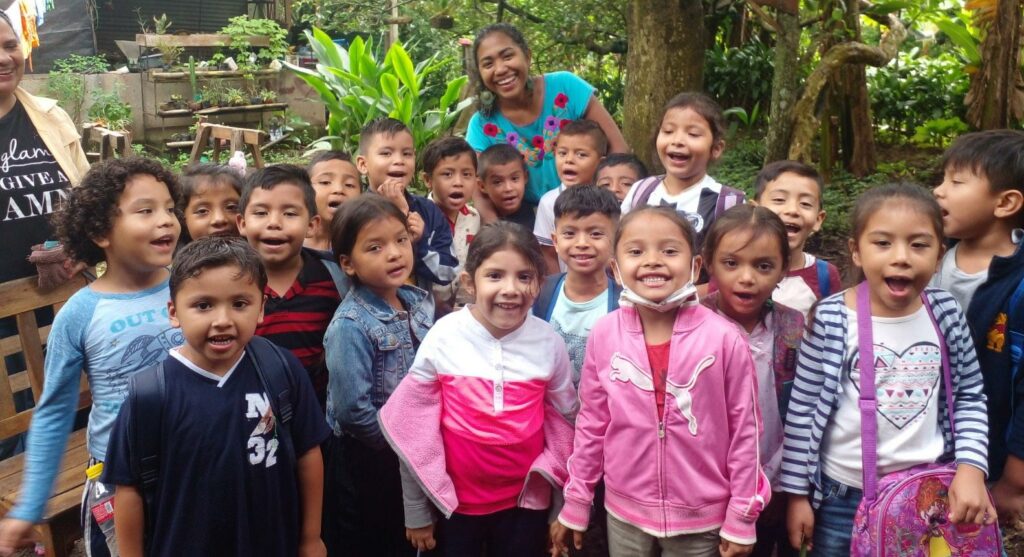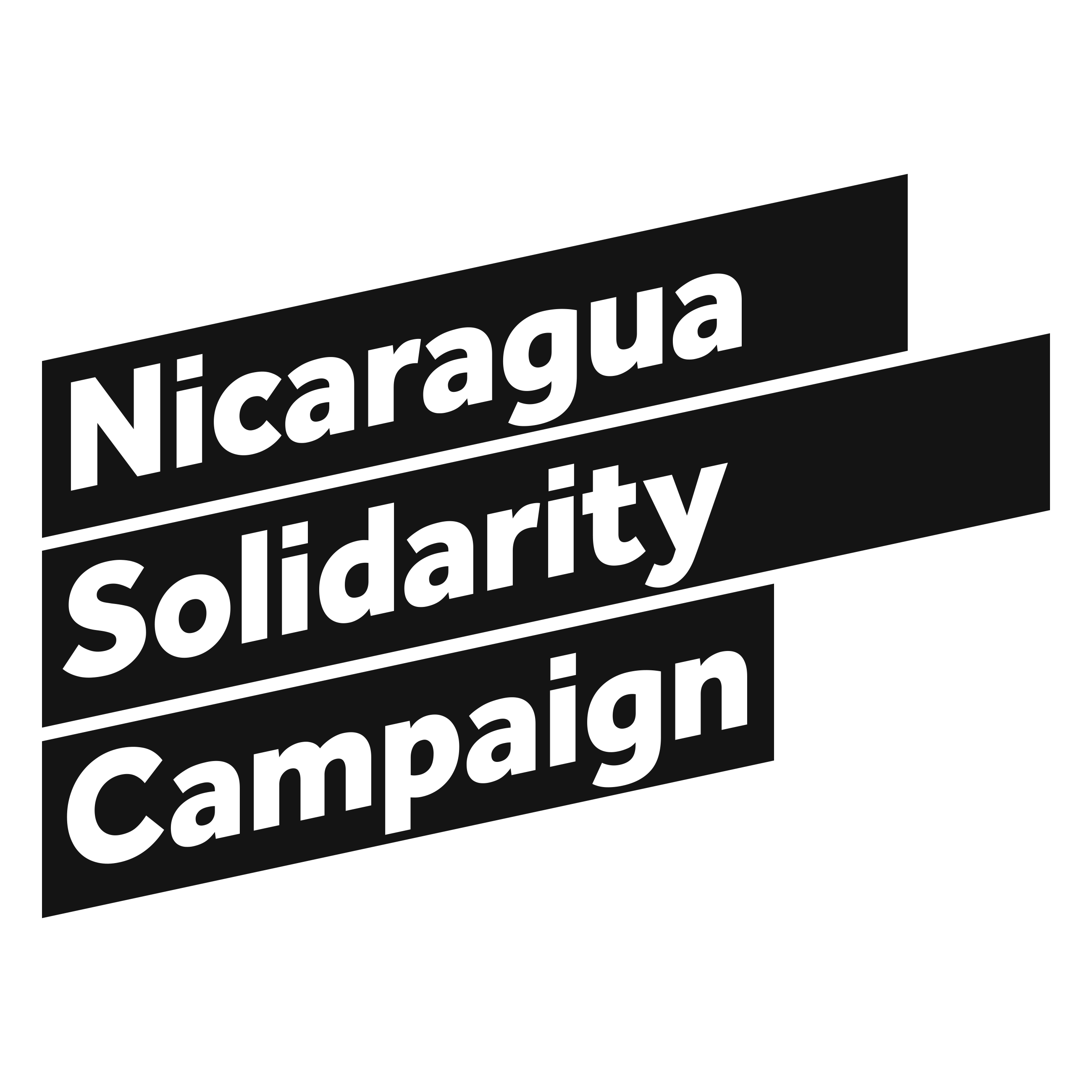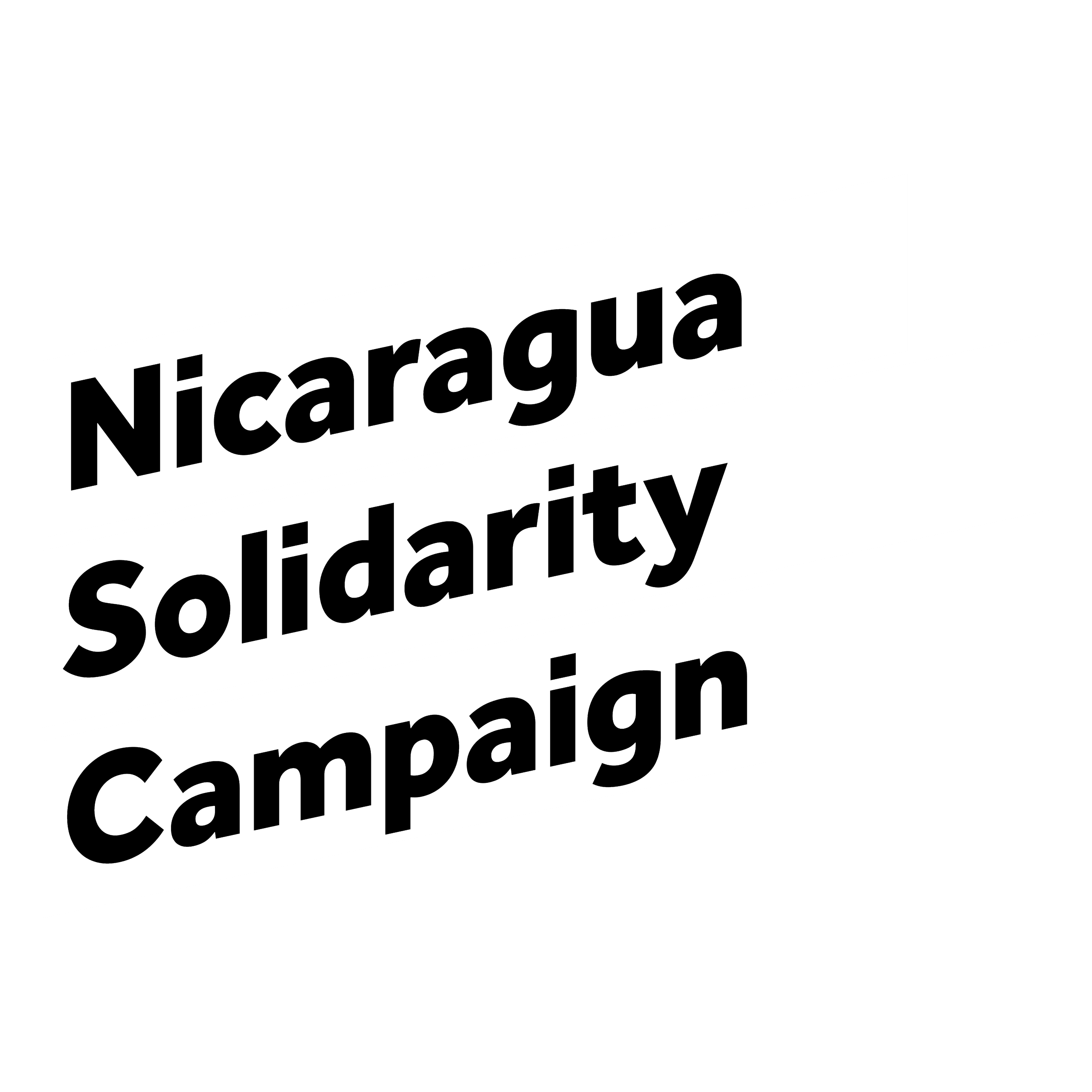
Recovering the habitat, biodiversity, & culture of native ‘stingless’ bees
In 2021 and 2022 researcher *Yorlis Luna made field visits throughout Nicaragua and the rest of Central America getting to know more about ‘meliponiculture’ (keeping of native ‘stingless’ bees). This was part of a participatory research programme in collaboration with the Nicaraguan Technology Institute (INTA)’s National Strategy for Beekeeping and Meliponiculture.
From the research the idea of a Meliponiculture Network emerged to connect beekeepers to exchange knowledge, to ensure greater visibility for their work and help to overcome the isolation of the many dedicated meliponicultores.
These native bees take their name from the Meliponini peoples in the Amazon. They act as primary pollinators for diverse native species of plants and are an important part of agroecology.
From 11-13 March, 220 people from Central America and Mexico participated in person and remotely in a Forum entitled “Mesoamerican and Caribbean Meeting of beekeepers: for water and for life, let’s take care of our native bees with love”.
Topics included reflecting on the deep link of Nicaraguan culture with bees and bees with the health of the landscape; and the links between honey and agroecological knowledge for food sovereignty.
Building Nicaragua’s capacity to produce its own food (food sovereignty) is critical to preventing the drift of young people northwards towards the Mexican border and all the resulting human suffering.
This is not only a tragedy for those who leave but also for Nicaragua and the families left behind, their communities and culture. Meliponiculture and agroecology are essential components of building food sovereignty to prevent this drift.
One key focus was recovering the symbolism of honey that goes far beyond something sweet to eat but is also an ecological process that represents the relationships between human beings and nature.
The organisation of the meeting reflected the spirit of bees with the cost of food, and logistics covered by the participants who all brought seeds, honey for tasting, and other produce characteristic of their territory.
Other activities included designing and painting a community mural depicting different species of bees: an analysis of the culture meliponiculture in Central America and the Caribbean; the sampling of honey and traditional food; workshops on making candles and medicinal ointments using bees wax, and visits to neighbouring areas.

The future ‘stingless’ beekeepers!
This is an edited version of an article was first published in Spanish on the website https://www.tortillaconsal.com/bitacora/node/1444
*Yorlis is undertaking this participative doctorial research with a grant from the Mexican Council of Sciences.

